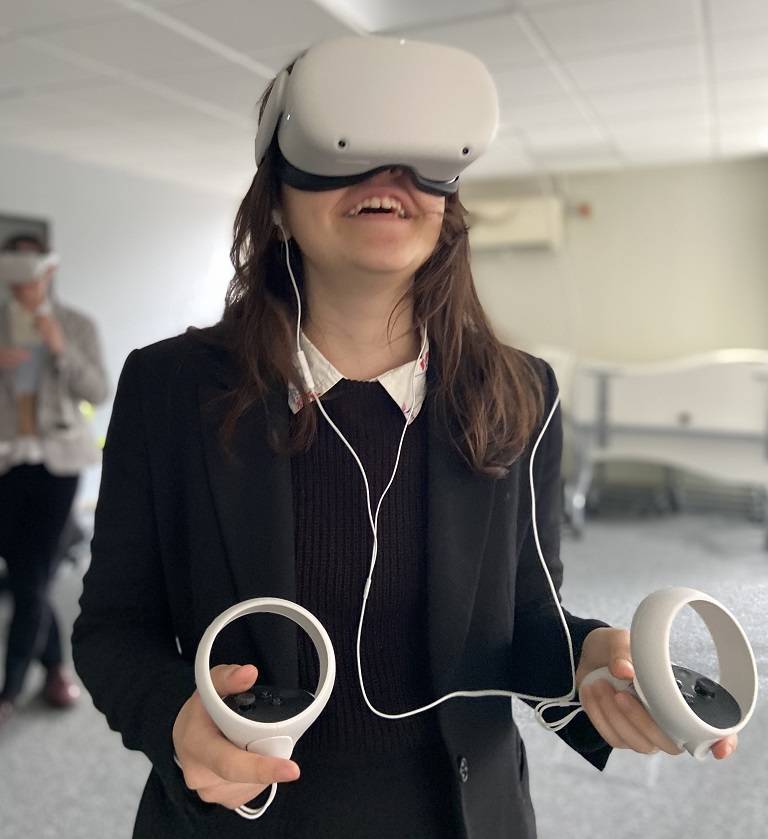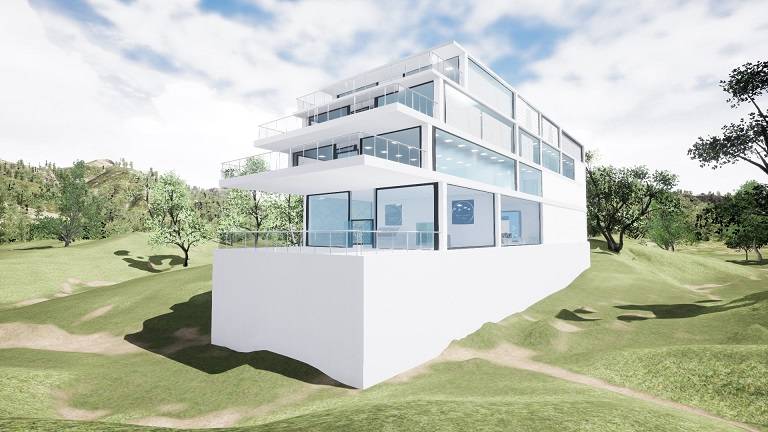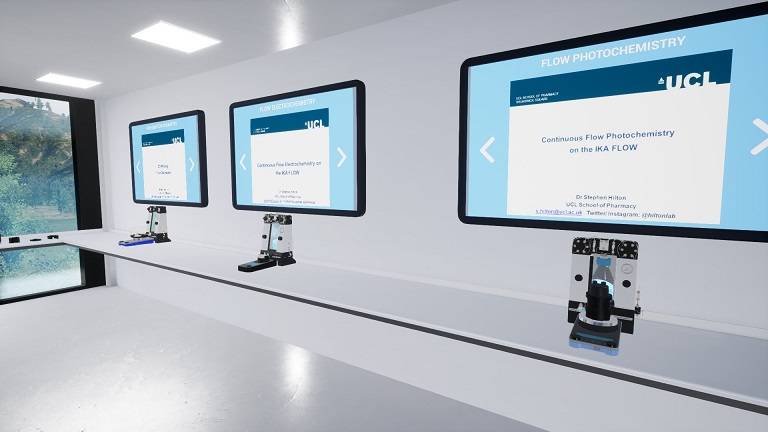Virtual Reality for Next Generation collaboration and training at UCL
22 February 2023
The UCL School of Pharmacy is using Virtual Reality to transform international collaboration, outreach and training. The Hilton research group has launched a new VR institute for collaboration and training with researchers from India and the UK.

The Hilton group at UCL School of Pharmacy have been developing Virtual Reality software to create a new paradigm approach towards international collaboration, outreach and training. This was recently realised by the official launch of the ISCC Virtual Reality institute in January by Dr. S. Chandrasekhar, Secretary, Department of Science & Technology, India, during a recent Symposium on Enabling Chemical Technologies for Sustainability.

Figure 1: Exterior of the India-UK ISCC Virtual Institute
ISCC VR is a bespoke digital building arranged across 4 floors, where 13 researchers and their teams from across the UK and India can come together under one roof and hold conferences to discuss their recent scientific advances, receive advanced equipment training and view live reaction data in collaborative research programs. Using the VR software developed by the group, users are able to simply put on a VR headset and meet exactly the same way as they would do in real life, despite being thousands of miles apart.
Users from India and the UK are also able to use this same digital space to enhance their widening outreach and education programs by inviting remote schoolchildren to visit the ISCC VR institute and to explain the importance of the science that they do and how they carry it out. In this manner, they will be able to greatly enhance the efficiency of their outreach programs and to reach more students than would have been possible using conventional methods.

Figure 2: Image of one of the Internal rooms showing the digitised equipment inside
The use of VR also makes science more engaging as users are able to interact with equipment in ways which previously would have been considered impossible. Using this same approach, the Hilton research group was recently awarded a Pearson HE innovate silver team award and a UCL Provost Education team award for their innovative work in using VR to transform undergraduate training at UCL, where they have been able to train over 200 first year students in a week on HPLC equipment.
In this approach, real-life machines were digitised by the group and recreated as their exact digital twin in Virtual Reality. Using this approach each student was able to work with their own HPLC in VR in ways which would have previously been unthinkable in real life. This represents a new approach to training within Universities as expensive equipment can easily be digitised and realised in VR and students can be allowed to use it in both a multi-user environment or in individual sessions to enhance their training and development.
Links
UCL links:
ISCC:
Further information:
Contact:
- Email: s.hilton@ucl.ac.uk
- Twitter: https://twitter.com/hiltonlab
- Linkedin: Steven Hilton profile
 Close
Close

